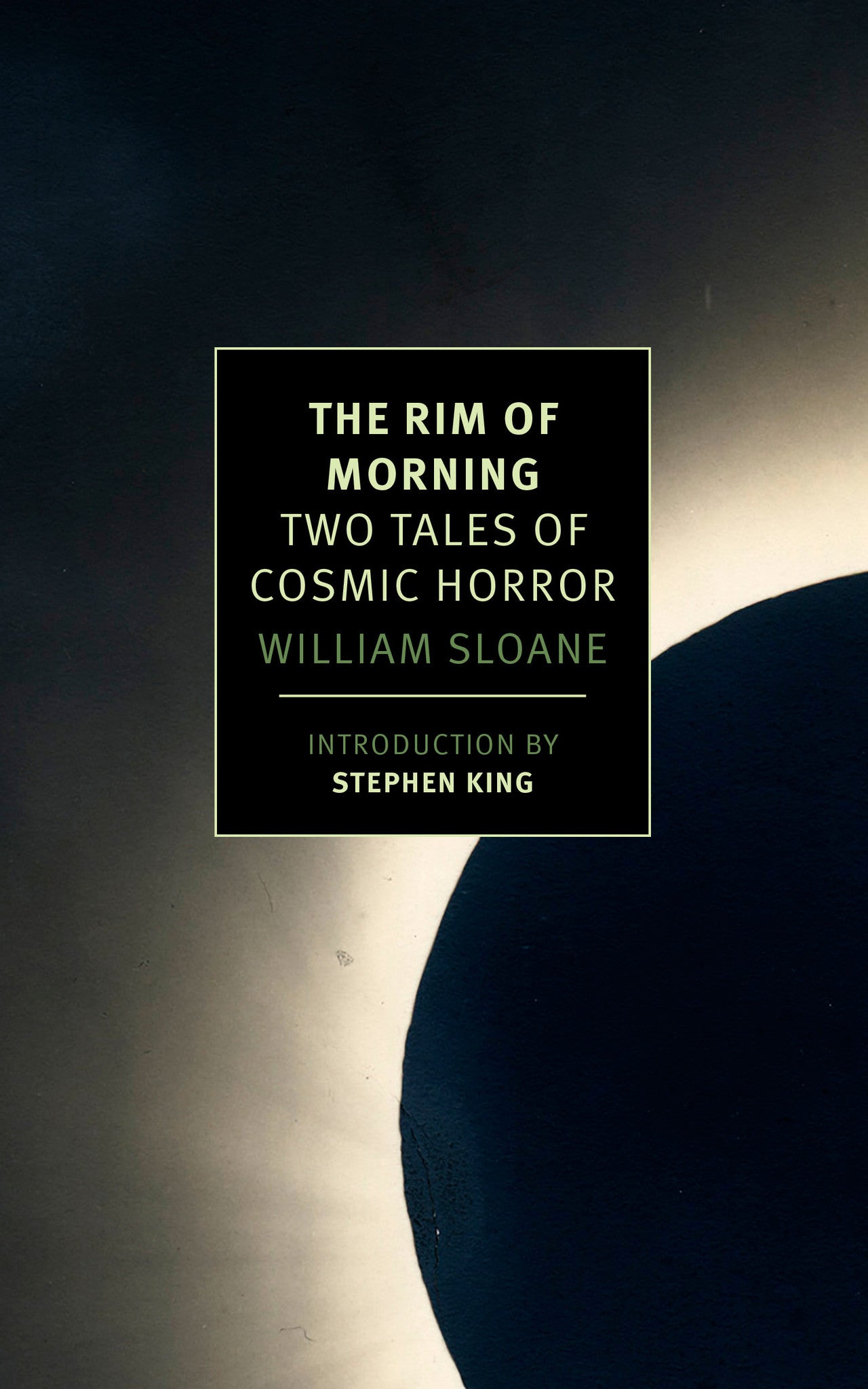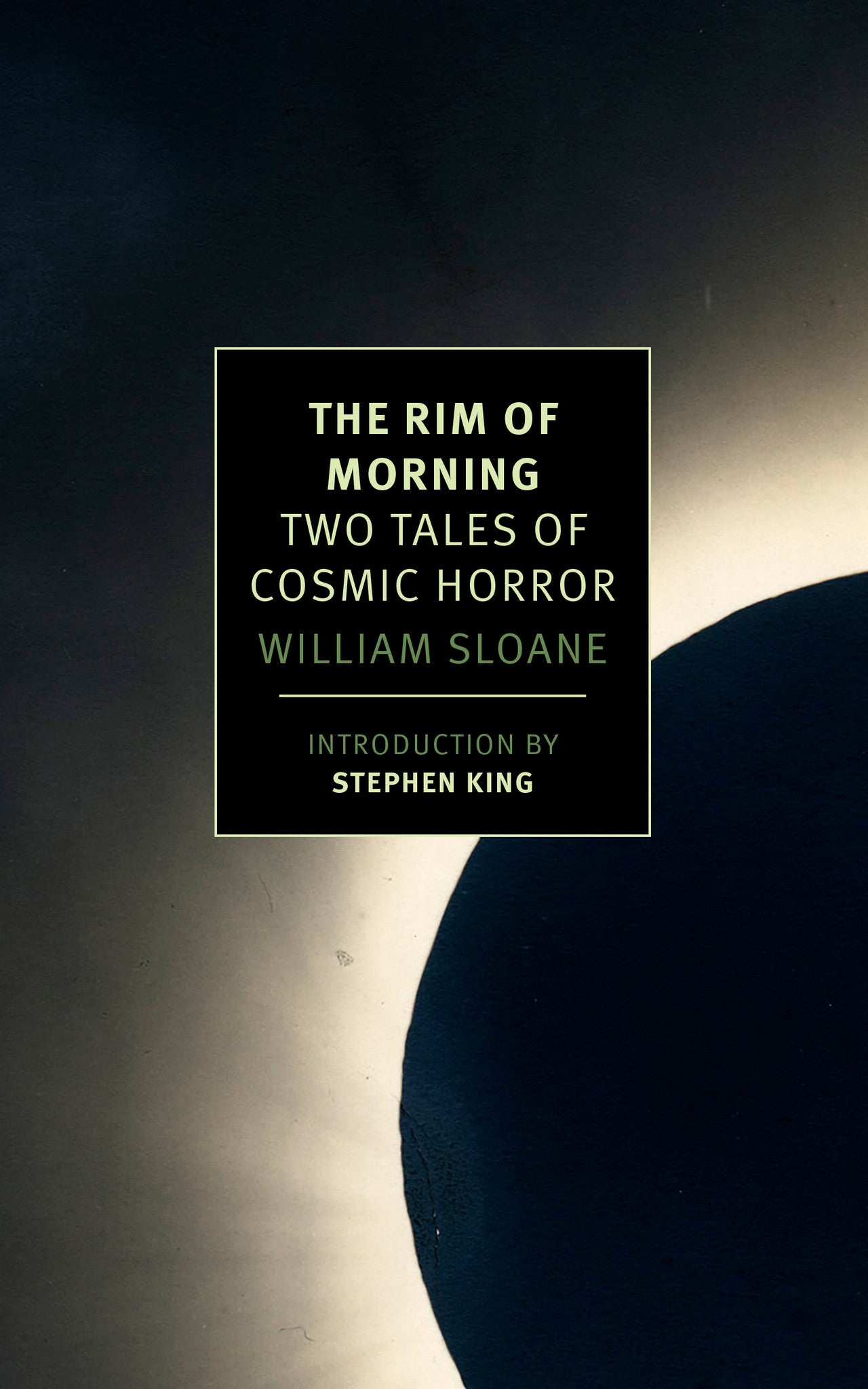“To Walk the Night" and ‘"The Edge of Running Water" are elegant and serenely paced, and they’re light on both the overt shocks of a King story and the overheated proses of a weird tale by Poe or Lovecraft; Sloane’s manner is patient, gentlemanly. What terrifies us, finally, in both these books is the vastness of our ignorance of the universe.
—Terrence Rafferty, The New York Times Book Review
Poised between the terrors of the old world and the quantum scientific leaps of the new, both novels are modern Promethean legends...Sloane pulls out all the stops to spin a diverting yarn, incorporating aspects of mystery, fantasy, science fiction, noir and horror, and yet his clear-eyed style is more immediate and far less mannered than the purple prose of that high priest of cosmic horror, H.P. Lovecraft.
—The Seattle Times
The Sloane book is distinguished not only by the admiring introduction from Stephen King, but by the second novel in the book, The Edge of Running Water. Edge is one of the great American horror novels, mysteriously overlooked and still extremely effective in its blend of witty, realist dialogue and overwhelming cosmic horror....Sloane’s measured prose and gift for describing nature and the supernatural make The Edge of Running Water a work of realism in conflict with awe….I can’t overrate Sloane’s work in the pantheon of American horror.
—Naben Ruthnum, National Post
As the editor of two SF anthologies and director of Rutgers University Press, Sloane would easily have made a name for himself in the speculative fiction world even if he had not written these two tremendous novels. Reprinted for the first time in years, "To Walk the Night" and "The Edge of Running Water" blend SF and horror in a manner wholly unheard of when they were originally published in the 1930s….Sloane’s eerie, exquisitely descriptive prose is influenced by Gothic literature as well as contemporary scientific theory….These all-but-forgotten texts make excellent reading for any fan of classic SF or eldritch horror.
—Publishers Weekly, starred review
The reader intuits what is happening all along, but the presentiment won't prepare for how and when the key moments happen, even though the most horrible event is told to you in the first few pages…There is something Lovecraftian in the overall aspect and motif of To Walk the Night, but as great as Lovecraft was, he never managed this sort of emotion and loss, combined with tension.
—Mikal Gilmore
The re-issue of these two remarkable novels in long overdue… I can think of no other novels exactly like these two, either in style or substance. My only regret is that William Sloane did not continue…Yet we must be grateful for what we have, which is a splendid rediscovery. These two novels are best read after dark, I think, possibly on an autumn night with a strong wind blowing the leaves around outside.
—Stephen King
With its witty dialogue, burnished glimpses of affluence and art, and eerily poignant ending, To Walk the Night reads remarkably like a contemporary thriller… Like Shirley Jackson, Sloane masterfully describes the paranoia and close-mindedness of an isolated rural community when outsiders take up residence… After reading both of these elegant, disquieting novels, one can marvel that they escaped mainstream attention for so long and rejoice that they’re back in print.
—Elizabeth Hand, Washington Post
Remarkable novels…unabashedly literary.
—Jonathan Sturgeon, Flavorwire
Age dulls our capacity for wonder—it is one of its more unforgivable deprivations—and we are still deeply grateful to any artist who can revive it within us. I love To Walk the Night for the glimmering it gave me of this universe as older and stranger and more terrible than I can imagine, the vertiginous sense of the world turning under my feet and the awful abyss falling away overhead. And I love The Edge of Running Water because… this book made me genuinely afraid not of death, but of the dead, a far more primal and magical fear. And because when I first read, after dark in an isolated cabin, Sloane’s description of the noise the unseen machine produces, it gave me an authentic case of the willies.
—Tim Kreider, Baltimore City Paper
Praise for To Walk the Night
To Walk the Night is not, as its title might seem to suggest, a mere ghost story. Its central idea is at once less usual and more horrible, but what that central idea is the reader must be allowed to find out for himself. The atmosphere of tense, apparently unreasonable dread and fear has been well worked up, and the climax skillfully developed… Though the story might be truthfully described as an extremely tall yarn, the reader, breathlessly turning the pages, forgets his twentieth-century incredulity until the tale is finished.
—L. M. Field, The New York Times
An absorbing and impenetrable problem, a group of finely developed characters, and a terrifying solution that fights its way up to the surface and makes you believe it.
—N. L. Rothman, The Saturday Review of Literature
Worthy of prompt attention by all and sundry; two strange deaths, a most exciting batch of superscience, and a fantastic solution that should knock you cold.
—Will Cuppy, New York Herald Tribune
A supernatural story that is neither sensational nor lurid, of an intelligence that borrowed human form and brought tragedy in its wake during two years on earth.
—Kirkus Reviews
This is a novel that has to be experienced, not described…this novel is still as believable now as it must have been back in the 1930s. It is a story that H. P. Lovecraft could have written.
—Robert Weinberg
Praise for The Edge of Running Water
Want to learn how to write a horror novel? Then read this book… It is told by a master writer, who didn’t need tricks or distractions to fool his readers.
—Robert Weinberg






